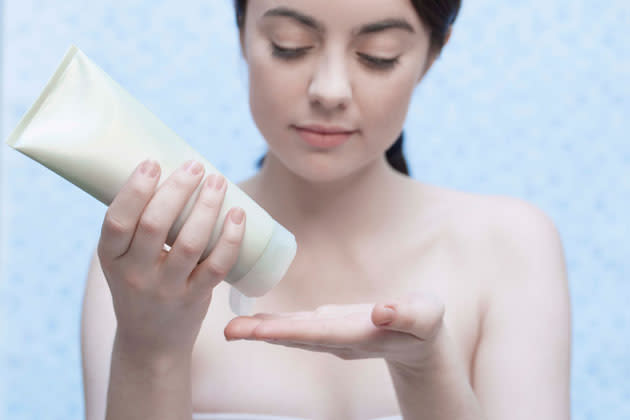Why Everyone Needs To Moisturize

It was only when I started work as beauty editor for Marie Claire magazine years ago that I began moisturizing religiously. That was in 2005, when I was 31 years old. Pretty late for someone to start an important beauty habit I know (my mom started slathering on her trusty Pond's cold cream when she was in her teens!) but funnily enough, very few women take the time to apply moisturizer. Such women give all types of excuses, so I've mapped out counter arguments to end all unacceptable reasoning:
"I have oily skin; moisturizing will make me even more oily."
I've met several women with oily skin who don't moisturize (they use mattifying/drying toners instead), yet they still suffer from a slick complexion. What they don't know is that the more they strip their skin of oil, the more they send their oil glands into overdrive, prompting them to produce even more oil. The solution: give oily skin the balance that it needs by using a light formula with either a lotion or milk-like consistency. Look for labels that say "oil-free," "water-based," "for oily skin," "non-comedogenic," and search for ingredients like "hyaluronic acid, glycerin, and lactic acid."
"I don't have time."
All it takes is a few seconds to massage a layer of moisturizer on your skin. Think of it as an extension of 10 seconds to your morning or evening shower. While your face is still damp, scoop your choice of moisturizer and slather it on your face and neck. This locks the moisture in your skin and keeps your complexion soft and smooth throughout the day. To cut down on application time, keep your jar of moisturizer next to your shower products so it becomes a part of your bath routine. The best time to moisturize? Those with extremely dry skin can do it twice a day, but once is enough for those with normal, oily, and combination skin.
"There are too many solutions to choose from!"
Yes, the choices get more complicated when there are so many options to pick from, but you can narrow down the selection by first knowing your skin type. Oily? (see above) Normal? Consider yourself lucky. A light, water-based formula works well for you. Combination? Face creams aren't geniuses; they can't tell which areas are oily, which are dry; you may need to use a light formula on the oily parts, and a heavier compound on the parched surfaces. Sensitive? Choose a formula that has the least amount of ingredients to lessen the chances of irritation. Also know that even if skincare products claim to be hypoallergenic, you can still get irritated. Do a patch test on your skin (streak some on your jawline) and see how your skin reacts.
"I can't afford expensive creams and lotions!"
You don't need to spend an arm and a leg to pay for a proper moisturizer. Many drugstore brands deliver just the same amount of efficiency as any high-end cream. Read the ingredients and look for the two best factors in a cream: hyaluronic acid, which keeps individual skin cells plump with moisture, and petrolatum, which acts as a seal to keep water from escaping.

